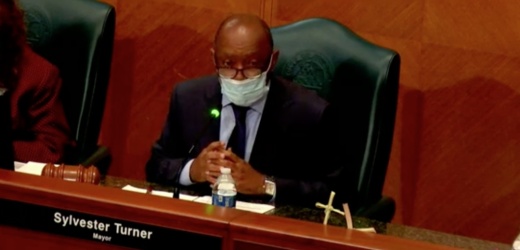Houston City Council met Jan. 26 to pass two ordinances pertaining to the reconstruction and leasing for a navigation center in the Fifth Ward that proponents said will help people transition out of homelessness.
The ordinances—both of which passed with a 12-4 vote—approved the funding for the city’s portion of the reconstruction cost of the center and the leasing agreement between the city of Houston, which serves as the landlord, and The Coalition for the Homeless of Houston/Harris County, which serves as the tenant.
The navigation center, which will be located in a 27,000-square-foot building at 2903 Jensen Drive, will host temporary housing for individuals who qualify. Those who go will have the opportunity to stay in the center for 30 to 60 days and then move onto permanent housing, Houston Mayor Sylvester Turner said. During this time, those who go will also receive employment and medical assistance, he said.
The center’s efforts are expected to extend into the community. Those in the Fifth Ward who are seeking either medical services or substance abuse assistance will have the opportunity to get the help that they need, according to Turner.
“We are being hands on to address the needs of the people and beyond,” Turner said.
More than 150 people signed up to speak at a Houston City Council public hearing Jan. 25. Some residents of the community came forward to voice their concerns about the navigation center.
Speakers who opposed the center said that they felt the area is already burdened with issues and that the funding for the project should be spent elsewhere, such as either on a recreational center for the kids or on addressing a previously identified cancer cluster in the area tied to a Union Pacific Corp. railroad site.
Others expressed concerns that the navigation center would cause residential property values to go down and have effects on surrounding businesses and infrastructure services.
However, Mike Nichols, the CEO of the Coalition for the Homeless of Houston/Harris County, said the navigation center will be an asset to the community, adding the “success of a coalition is a collaboration.”
Several of the four City Council members who voted against the item Jan. 26 also expressed their concerns during the meeting.
District F Council Member Tiffany Thomas said the city needs to help those in the area first.
At-large Council Member Letitia Plummer agreed, saying if the city has the resources to build the center, then it should have the resources to fix the many other problems that were brought up during the public hearing. Plummer also said the processes by which the city engages with the community on projects like this need to be improved, adding many residents in the community claimed they were not made aware of the center until recently.
“The fight is the process,” Plummer said. “And that’s what needs to be fixed.”
Addressing the concerns of the community and council members, Turner said he plans to meet with the community to monitor the navigation center once it opens up. He said he will commit to shutting down the center at any time should there be a reason for it.
Addressing the ongoing investigation into cancer clusters, Turner assured residents that he is working closely with the Environmental Protection Agency.
The navigation center is the first of many ongoing efforts the city is implementing as part of the second phase of the Community COVID Housing Program.
At a Jan. 26 press conference, Turner was joined by Nichols; Harris County Precinct 2 Commissioner Adrian Garcia; and Anthony Love, the interim executive director of the U.S. Interagency Council on Homelessness.
According to Turner, the joint effort among the city, county and coalition has been able to help 7,000 people escape homelessness since the first phase of funding, surpassing their goal of 5,000. The second phase will help fund a $100 million initiative to house individuals, he said.
“This is an emergency response to an infectious disease,” Turner said. “But one that will have a permanent impact."
The coalition also extends its hand across Fort Bend and Montgomery counties and has housed 24,000 individuals since 2011. In an interview with Community Impact Newspaper, Ana Rausch, vice president of program operations for the Coalition for the Homeless, said the coalition has closed over ten hot spot encampments in the intersections along Hwy. 290 and I-45 South from Loop 610 this past year. The organization is now targeting an encampment from the Grand Parkway to I-10 West.
“We have an encampment response strategy manual,” Rausch said. “It’s a four- to six-week training process, and it takes about one week to close the encampment. It involves bringing housing providers, law enforcement, cleanup crews and [the Texas Department of Transportation] if needed to completely remove access as we take everyone and put them on buses to house them.”
The coalition, along with the city and county, is seeking to end or minimize the problem as much as possible, gauging its success based on the people who are housed, Rausch said.
“The best way to end homelessness is with permanent housing and supportive services,” she said. “We do not endorse putting money into temporary solutions like shelters because, at the end of the day, you’re not making a long-lasting effort or change in that person’s life.”
The city’s portion of the construction cost is roughly $4.2 million. The reconstruction effort is slated to be completed by the end of July, at which point operations at the center will begin.
Jishnu Nair contributed to this report.





